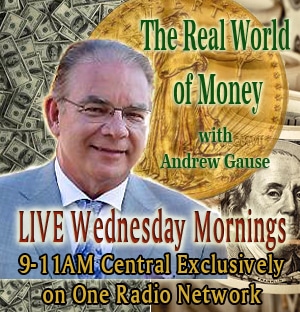— Lehman Brothers Holdings Inc. may shift about $32 billion of commercial mortgages and real estate to a new company that will be spun off in a move similar to the good-bank-bad-bank model used in the 1980s banking crisis, two people briefed on the discussions said.
The bad bank, nicknamed Spinco for now, would have about $8 billion of equity coming from Lehman, the people said, speaking on condition of anonymity because the plan is one of several under consideration. Spinco would borrow the remaining $24 billion from Lehman or outside investors. The New York-based bank would replace capital put into Spinco, whose shares would be owned by current Lehman shareholders.
Lehman Chief Executive Officer Richard Fuld, 62, is under pressure to strip the firms balance sheet of hard-to-sell assets. To raise cash needed to cope with losses from a wholesale disposal, Lehman has been talking with Korea Development Bank about a capital infusion and with private equity firms interested in buying its asset-management unit.
“The model helps banks get on with their real business, focus on their strengths, after they put the bad assets aside,said Michael Bleier, an attorney at Reed Smith LLP who was the senior counsel to Bank Mellon during its spinoff of bad assets in 1988. “We’ll see it being used again during this crisis.’
Mark Lane, a spokesman for Lehman, declined to comment.
Korea Talks
The Spinco proposal would enable Lehman to dispose of 80 percent of its commercial mortgages, the people said. Under another plan, the firm would establish a company capitalized and managed by outside investors to buy some of its mortgage assets. The Spinco plan would enable Lehmans shareholders to benefit from a turnaround in the mortgage market.
Korea Development Bank has been in discussions to buy a 25 percent stake in Lehman for $6 billion, according to the people familiar with the talks. That would replace most of the capital Lehman would put into the bad bank.
The deal must be structured to guarantee enough cash flow from the mortgages being put into the spun-off entity to repay outside lenders, Reed Smiths Bleier said. That would force Lehman or another bank using the model to disclose much more detail about the mortgages and the securities, he said.
Balancing Act
Lehmans $65 billion mortgage-related portfolio has spooked shareholders, driving the stock price down 77 percent this year on concern that the $2.8 billion loss in the second quarter wouldn’t end the bleeding. The bigger portion of the portfolio, or $40 billion, is tied to commercial real estate.
Even though defaults of commercial mortgages are still below 1 percent, speculation that delinquencies will jump in that market has pushed down the prices of the bonds backed by commercial real estate loans. By spinning off the mortgages to its own shareholders, Lehman can allow them to benefit from a possible recovery in asset prices when investors realize commercial mortgages aren’t going the way of subprime.
“Managements challenge is not that of discarding a troubled portfolio,said David Trone, an analyst at Fox-Pitt Kelton Cochran Caronia Waller. “Instead, management must find a way to relieve pressure on the stock without destroying shareholder value by succumbing to an unwarranted fire sale of commercial mortgages.’
KKR, Carlyle
Lehman, the largest underwriter of mortgage bonds last year, has been trying to reduce assets linked to that market as demand dried up and prices plummeted, generating more than $8 billion in writedowns and credit losses. BlackRock Inc., the largest publicly traded U.S. money manager, was considering a purchase of some of Lehmans commercial mortgages, people familiar with those discussions said last month.
If talks with the Korean bank fail, Lehman will turn to the other option for raising capital, the people familiar with the firms plans said. Private-equity firms including Kohlberg Kravis Roberts & Co. and Carlyle Group have been negotiating to buy a stake in Lehmans asset-management business, which includes Neuberger Berman Inc.
Fuld removed his associate of 30 years, President Joseph Gregory, 56, in June and replaced him with Herbert “Bart’McDade, 49, who had run fixed income and equities. Fuld, McDade and other members of the management team are racing to conclude a deal with potential investors before the firm reports earnings this month, people familiar with the situation have said. The company typically announces earnings in mid-September, although last quarter it released preliminary figures a week before schedule.
The mortgage-bond crisis that spread to Lehman escalated in June 2007, when Bear Stearns Cos. began liquidating holdings from one of its hedge funds after losing bets on securities tied to subprime mortgages. Bear Stearns, then the fifth-largest U.S. securities firm, sold itself to JPMorgan Chase & Co. for $10 a share.



'Lehman May Shift $32 Billion of Mortgage Assets to ‘Bad Bank’' has no comments
Be the first to comment this post!